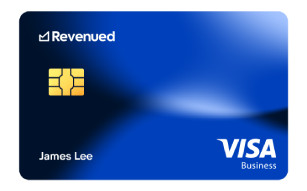What Happens if you Default on an SBA Loan?
What Happens if you Default on an SBA Loan?
There are many reasons to take a loan administered by the Small Business Administration (SBA). These loans come with low interest rates, favorable repayment terms, and generous limits, anywhere from a few thousand dollars to $5 million. But let’s say you’re a small business with an SBA loan and, despite your best efforts, can’t repay the balance. What now?
SBA as Guarantor
First, let’s quickly review the structure of these loans.
The SBA does not provide the loan itself. Rather, the government agency has a number of trusted lenders like banks that provide the loan. The SBA guarantees up to 85% on loans of $150,000 and less, and up to 75% on loans over $150,000. This generous guarantee means the banks can offer financing at favorable rates and terms.
But What Happens if you Default on an SBA EIDL
(Economic Injury Disaster Loan) or the popular SBA 7(a) loan?
In those cases, the lender (usually a bank) will contact you to discuss possible SBA loan default resolutions. If you can reach a satisfactory agreement at this juncture, that’s the best option. Many banks offer a loan-restructuring plan or interest-only payments for a limited time period.
If that’s not possible, the lending institution will likely start charging late fees. The amount of those charges depends on the contract you signed with the bank. The lender may also seize assets you offered as collateral to back the loan, including bank accounts, real estate, or inventory.
If a business was required to add a guarantor to the loan agreement, the SBA could also try to collect from those individuals. In some cases, the SBA might also file a lawsuit against the borrower and even the guarantors.
The Default Process
At this point, if the business still can not repay the loan and the bank has not collected enough from collateral or guarantors to fund the entire balance, the lender will begin the SBA loan default process by submitting a claim to the agency. As mentioned previously, the SBA guarantees a good portion of the loan, and will pay the outstanding loan amount to the lender.
But the story’s not over yet. Even though the bank has been paid, the SBA will now come after the borrower for the amount of the guarantee it paid to the lender. If your business has turned around and you can repay the SBA, all the better. If not, you can offer the agency what is known as an “offer in compromise.”
In this scenario, the borrower negotiates with the SBA to reach a settlement that is less than the total amount owed. The SBA will then consider the compromise offer, taking into account your finances.
If the SBA accepts the business’ compromise offer, it will offer a new payment schedule and terms. If the SBA rejects the initial offer, a business can submit new terms, perhaps offering to pay off more of the loan.
Here Comes the Treasury
The worst case scenario comes when the SBA rejects the compromise offer and sends your account to the US Treasury Department for collection. Since the Treasury is tasked with collecting taxes and investigating financial crimes, it enjoys the full backing of the US government. The Treasury can in fact garnish your wages and collect refunds from your tax return.
But a business owner can also offer a compromise settlement with the Treasury Department. If they accept, you will likely receive favorable terms for repayment of the loan.
There is technically an SBA loan default statute of limitations of six years. But tax attorneys say that despite that limitation, the federal government can exploit loopholes to collect its payment.
How to Avoid Default
It’s never a good idea to default on a loan, especially one backed by the US government. As a business owner, it’s advisable to keep on top of your finances to make sure that you can pay back all of your loans. Here are a few tips:
- Pay careful attention to your business’ cash flow and create an emergency budget
- Take less salary to free up funds
- Reduce expenses as much as possible
- At the first sign of trouble, consult a tax attorney or accountant to discuss possible options.
No business owner wants to default on a loan. But know that there are possible remedies to the situation and a way out of the predicament. Once it’s all over, it will be a valuable (if painful) lesson learned.
RELATED ARTICLES
Revenued Business Flex Line vs Ecommerce Revenue Based Financing
Learn MoreRevenued Flex Line Pricing vs. (MCA): A Comparative Analysis
Learn MoreWhat is My Business’ Credit Utilization Ratio?
Learn MoreWhy is Cash Flow Important to Your Business?
Learn More
Boost your spending power with the Revenued Business Card
Only pay for what you use at gas stations, hotels, supply stores, supermarkets and more.
Take control with the Flex Line
Check your available balance online and request a cash draw with the tap of your finger, anytime.

